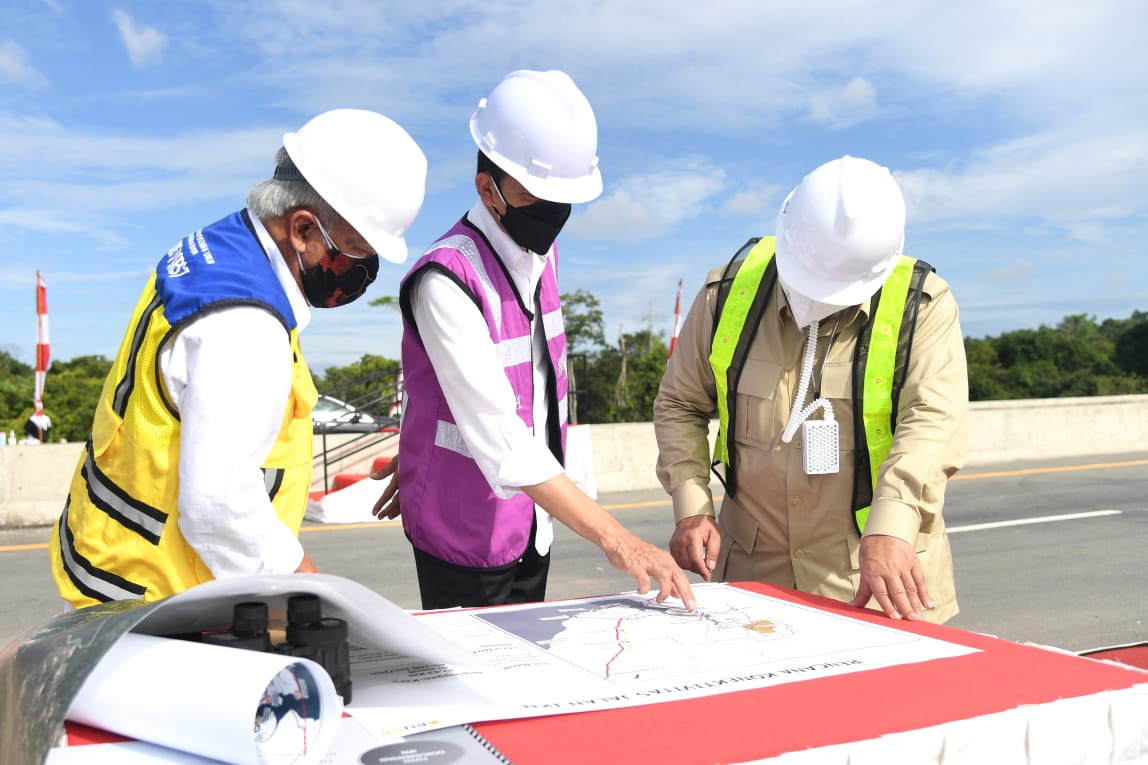Popular Reads
Top Results
Can't find what you're looking for?
View all search resultsPopular Reads
Top Results
Can't find what you're looking for?
View all search resultsBuilding new capital ‘could take 20 years’
Rome wasn’t built in a day, and neither will Indonesia’s new capital. Turning the plan into reality will take decades, authorities have said, putting a damper on hopes that the project would get off the ground during President Joko “Jokowi” Widodo’s term in office.
Change text size
Gift Premium Articles
to Anyone
T
he National Development Planning Agency (Bappenas) estimates that the construction of Indonesia’s new capital city in East Kalimantan will take decades, indicating that the project will stretch far beyond President Joko “Jokowi” Widodo’s current and final five-year term.
Bappenas head Suharso Monoarfa told lawmakers on Wednesday that the agency estimated 15 to 20 years would be needed for the relocation, including all requirements. Suharso, who also serves as national development planning minister, said the agency would divide the development period of almost two decades into several stages, each with its own tasks and timeline.
The city is to occupy an area of 256,000 hectares in the East Kalimantan regencies of North Penajam Paser and Kutai Kartanegara. As the future capital, it would take some of the pressure off Jakarta, which currently serves as both the country’s administrative center and business hub.
According to current plans, the project will cost Rp 466 trillion (US$32.7 billion), only about 19 percent of which is to come from the state budget.
“I want to make it clear that it's impossible to build the [new] capital through magic in two, three [or] four years. In Bappenas's master plan, it is estimated that [the move] will take [between] 15 and 20 years to complete,” Suharso said during a meeting with the House of Representatives.
He added that the agency had finished a draft for the relocation bill, as the prevailing law clearly determined Jakarta as the legitimate state capital. Once the bill was passed, the government would form an authority with the sole purpose of overseeing the new capital.
The agency was also making several adjustments to the plan in response to the COVID-19 pandemic, he said.
“We want to adapt the capital city to the pandemic."
Read also: Govt says capital city relocation will resume
The new capital city project has been lauded by some as a silver bullet for overcoming the economic disparity between Java and other parts of the country. The government also aims to attract more investment to Indonesia and boost the country’s economy with the development.
Meanwhile, some analysts have expressed doubts over the plan, which they say is driven by the President's desire to leave a legacy for himself. Others have criticized the project for benefiting real estate barons suffering from a stagnant property market, as well as concession owners who had exploited the land for mining and plantation.
The government plans to relocate its administrative hub to East Kalimantan by 2024, including the Independence Day flag ceremony. This year, the government meant to work on a master plan and technical details, as well as construct the basic infrastructure.
However, the plan was put on hold in September 2020 as the government turned its focus on the COVID-19 pandemic. The President announced the plan would resume on Aug. 28, as the daily infection count was on the decline.
Read also: New capital city to contribute little to Indonesia’s economic growth: Indef
Citing Finance Ministry information, Kompas reported on July 30 that the government had allocated Rp 1.7 trillion for the new capital project in 2021 to be spent across four ministries, namely the Public Works and Housing Ministry, the Transportation Ministry, the Environment and Forestry Ministry, and the Agrarian and Spatial Planning Ministry.
No amount had been set yet for the 2022 budget as specific allocations would be decided once the bill on the project was passed, Bappenas regional development undersecretary Rudy Prawiradinata told the Post on Friday.
During Wednesday’s meeting, Suharso also told lawmakers that the agency had had its funding cut four times as a part of budget changes made in response to the prolonged pandemic.
As a result, some Bappenas spending, particularly for consulting and expertise, had been disrupted, he added, noting that this spending came from the same budget allocation also used to procure services from notable firms consulted on the new capital masterplan.
Despite the difficulties caused by the pandemic, Suharso assured lawmakers that the project could continue as planned. He said the new city would incorporate many ambitious concepts to make it a green and futuristic city open to the world.
“Hopefully, there is no risk of it stalling; this is a city development project, after all,” Suharso said.










